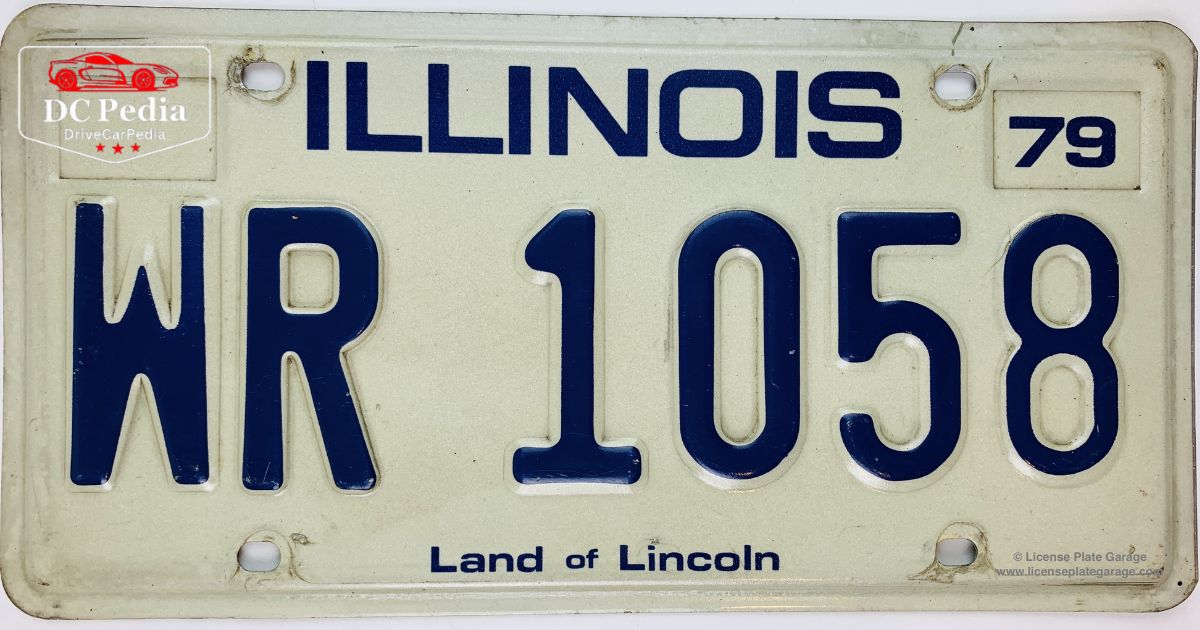In Illinois, the “F P” designation on license plates stands for “Farm Plate,” and it’s a ticket to understanding a crucial slice of the state’s culture and economy. These plates are not just regular tags; they are the hallmark of vehicles dedicated to the farming sector, reflecting the deep roots and ongoing importance of agriculture in Illinois.
The presence of an F P Stand For On Illinois License Plates is more than just a functional label; it’s a tribute to the hardworking farmers who till the land and sustain the local communities. This distinction helps underscore the identity of those at the forefront of Illinois’ agricultural scene, celebrating their contributions with every mile they drive.
Vehicles bearing “F P” plates enjoy perks that go beyond mere recognition. Farmers benefit from lower registration costs and specific exemptions, which streamline their operations and offer financial relief. These benefits are not only supportive gestures by the state but also crucial aids that help keep the agricultural wheels turning efficiently.
F P Stand For On Illinois License Plates: Illinois Fleet License Plate
In the landscape of Illinois transportation, F P stands for On Illinois License Plates stands out as it represents the “Fleet Plate.” This designation is crucial for companies operating multiple vehicles, streamlining their management and identification within the bustling state. It signifies a unified fleet under one owner, simplifying paperwork and enhancing regulatory compliance.
Having a Fleet Plate in Illinois is particularly beneficial for businesses in terms of efficiency and operational coherence. It allows companies to maintain a smoother registration renewal process and ensures that all vehicles are recognized under a single entity. This is particularly advantageous for logistics, delivery services, and other enterprises relying on a substantial vehicular presence to conduct business.
Read More: Illinois Insurance Verification System Information
FP On License Plate: Other States
The “FP” designation can indicate different purposes in various states, not just in Illinois.
Oregon Fleet License Plate
In Oregon, fleet license plates are assigned to vehicles owned by companies, allowing simplified management of multiple vehicles.
Florida Fleet License Plate
Florida uses fleet plates to identify vehicles operated by the same business, aiding in logistical coordination and legal compliance.
California Fleet License Plate
California offers fleet plates to streamline registration and renewal processes for businesses with numerous vehicles.
New York Fleet License Plate
In New York, fleet plates are used by businesses to ensure all their vehicles are registered under a single system for easier tracking.
Washington, D.C. Fleet License Plate
Washington, D.C., provides fleet license plates to organizations, facilitating vehicle management and operational efficiency across the district.
Benefits of F P Stand For On Illinois License Plates
The F P Stand For On Illinois License Plates Designation, standing for “Farm Plate,” carries significant benefits that cater specifically to the agricultural community within the state. This special category of vehicle registration helps support and sustain the vital operations of farms by offering several practical advantages:
- Reduced Registration Fees: One of the primary benefits of the Farm Plate is reduced fees for vehicle registration. This financial relief is crucial for farmers, as the cost savings can be redirected into other essential areas of their operations, such as purchasing seeds, equipment maintenance, or hiring labor.
- Exemption from Certain Regulations: Vehicles with Farm Plates are often exempt from some of the regulations that apply to commercial vehicles. For example, they may have more lenient rules regarding weight limits and road usage, which can be extremely beneficial during planting and harvest seasons when heavy loads are common.
- Operational Efficiency: The Farm Plate allows for easier identification of vehicles that are legally allowed to carry larger loads of agricultural products. This can expedite transport processes and reduce the administrative burden on farmers, ensuring that their operations run more smoothly and without unnecessary delays.
- Enhanced Flexibility in Vehicle Use: Vehicles with Farm Plates enjoy more flexibility in how they are utilized. They can transport agricultural goods, farm implements, and even carry materials needed directly for farm operations without the stringent restrictions that might apply to other vehicle categories.
- Support for Local Agriculture: By distinguishing and supporting vehicles used primarily in agriculture, Illinois acknowledges and reinforces the importance of farming to the state’s economy and cultural heritage.
Eligibility Criteria for F P Stand For On Illinois License Plates

To qualify for an “F P” or Farm Plate in Illinois, applicants must prove that their vehicles are primarily used for agricultural purposes. This includes activities such as transporting farm products, supplies, or machinery. The vehicle must be owned by an individual involved in farming or a corporation, partnership, or association engaged in agriculture.
The vehicle in question must be capable of transporting at least 1,000 pounds, which is a requirement that aligns with the typical needs of a farming operation. This criterion ensures that the benefits of Farm Plates are reserved strictly for those genuinely involved in agriculture, supporting the integrity and intent of this specialized licensing.
Relative Post: What Is PM On A License Plate?
Application Process for F P stands for On Illinois License Plates
Applying for an “F P” or Farm Plate in Illinois is a straightforward process aimed at supporting the farming community. First, the applicant must gather documentation that proves the vehicle is used primarily for agricultural purposes. This includes evidence such as property tax forms, proof of agricultural income, or a statement of farm employment.
Next, the vehicle owner must fill out the appropriate application form available from the Illinois Secretary of State’s office. This form requires details about the vehicle and its use in farming operations. Once completed, the form, along with the necessary supporting documents and the required fee, must be submitted either through mail or in person at a local Secretary of State facility.
The process is designed to be accessible and efficient, ensuring that farmers can obtain their plates and continue their essential work with minimal disruption.
| Step | Description | Documentation Needed | Where to Submit |
| 1 | Verify eligibility | Proof of agricultural use (tax forms, income proof) | – |
| 2 | Complete the application form | Application for Farm Plates | Illinois Secretary of State’s Office |
| 3 | Gather necessary documents | Vehicle information, proof of farming activity | – |
| 4 | Submit application and pay fees | Completed form and relevant documents | By mail or in person at local office |
| 5 | Receive your Farm Plates | – | Delivered to your registered address |
This table breaks down the application process into manageable steps, ensuring that prospective applicants can easily understand what is required to secure their “F P” license plates in Illinois.
Potential Drawbacks of F P Plates
Limited Use: Vehicles with “F P” plates are restricted to agricultural purposes only. This limits their use for non-farming-related activities, which might be inconvenient for some owners.
Geographic Restrictions: These plates may also come with geographic restrictions, confining the vehicle’s operation to certain areas close to the farming property.
Seasonal Limitations: Since farming is often seasonal, these vehicles might be underused during off-season periods, potentially leading to unnecessary costs for registration and maintenance.
Alternatives to F P Plates
Regular Plates: For more flexibility, farmers might opt for regular license plates. This allows the vehicle to be used for various purposes, not just farming.
Commercial Plates: For larger operations, commercial plates might be more suitable. These allow for broader usage and are not restricted to agricultural activities.
Leased Vehicles: Leasing vehicles for specific farming tasks or seasons can be more cost-effective and less restrictive than owning a vehicle with F P plates.
Each option has its trade-offs, and the best choice depends on the specific needs and circumstances of the vehicle owner.
Best Practices for Managing FP License Plates
Managing “FP” (Farm Plate) license plates in Illinois requires a thoughtful approach to ensure compliance and maximize the benefits they offer. First and foremost, it’s crucial for farmers to renew these plates annually before the expiration date to avoid penalties. Staying on top of paperwork, such as proof of vehicle use in agricultural activities, simplifies renewals and maintains the privileges that come with the plate.
Farmers should be aware of any changes in state regulations regarding FP plates to ensure they are always in compliance. Utilizing a designated folder or digital system to keep all related documents organized is a wise practice. This proactive management helps avoid any disruptions in farm operations and leverages the benefits designed to aid the agricultural community efficiently.
Tips for Obtaining F P Stand For On Illinois License Plates
Obtaining an “FP” (Farm Plate) license plate in Illinois involves a few key steps to ensure a smooth process. Here are some practical tips:
- Determine Eligibility: First, verify that your vehicle qualifies for an FP plate. Vehicles must be used primarily for agricultural purposes. Gather documentation such as proof of owning or leasing farmland or evidence that the vehicle is used for farming activities.
- Gather Necessary Documents: You’ll need to provide documents proving your involvement in agriculture, such as tax forms, farm deeds, or lease agreements. Also, ensure your vehicle registration is up to date.
- Visit Your Local DMV: While some aspects can be handled online, visiting a local Department of Motor Vehicles (DMV) office can provide direct assistance and answer any questions about the FP plate application process.
- Complete the Application: Fill out the necessary application forms for a farm plate. Be thorough to avoid delays related to missing information or inaccuracies.
- Pay the Required Fees: There will be fees associated with the issuance of FP plates. These are typically lower than standard vehicle registration fees, reflecting the agricultural use of the vehicle.
By following these tips, you can efficiently obtain your FP plates, ensuring you take full advantage of the benefits offered to Illinois’s farming community.
Future Developments and Trends
Looking ahead, there are several important changes and trends shaping different areas of our lives and work. Here are some key points to keep in mind:
- More Technology: Technology keeps getting better and more a part of our daily lives. Things like artificial intelligence and robots are going to change how we work and do things, making tasks easier and opening up new possibilities.
- Going Green: There’s a big push to take care of our planet. This means more businesses and governments will focus on using less harmful ways to do things, like using renewable energy and creating products that are better for the environment.
- Healthcare Improvements: In healthcare, new tools and technology like personalized medicine and online doctor visits are going to make getting medical help faster and more specific to each person’s needs.
- Work from Home: The trend of working from home is likely to continue. This will affect where people live and how office spaces are used, making flexible work arrangements more common.
- Staying Safe Online: As we use the internet more, keeping our information safe becomes more important. This means there will be a greater focus on stopping cyber attacks and protecting privacy.
These trends show that our future will be more connected, efficient, and focused on using technology in ways that are good for both people and the planet. It’s important to stay updated on these changes as they develop.
Final Words About F P Stand For On Illinois License Plates
If you’re cruising through Illinois and spot a license plate marked with “F P Stand For On Illinois License Plates,” you’re looking at a Farm Plate. These plates are more than just metal and paint; they represent the heart of Illinois’ agriculture. They offer special perks to help farmers thrive by cutting costs and easing regulations.
So, next time you see one, you’ll know it’s supporting the state’s vital farming community. Dive into the world of FP plates and discover how Illinois backs its farmers, keeping both the fields and the future growing strong.
Frequently Asked Questions
What is an FP plate in Illinois?
In Illinois, an “FP” plate, or Farm Plate, is a special type of license plate designated for vehicles primarily used in agricultural activities. These plates are issued to support farmers by offering benefits like reduced registration fees and exemptions from certain regulations.
Can FP plates be transferred to a different vehicle?
Yes, FP plates can be transferred to a different vehicle as long as the new vehicle is also used for agricultural purposes.
Are FP plates only for commercial businesses?
No, FP plates are not just for commercial businesses. They are available to any vehicle owner who uses their vehicle primarily for farming or agricultural activities, whether it’s a business or personal operation.
Can individuals obtain FP plates for personal vehicles?
Yes, individuals can obtain FP plates for their personal vehicles if these vehicles are primarily used for agricultural activities.









